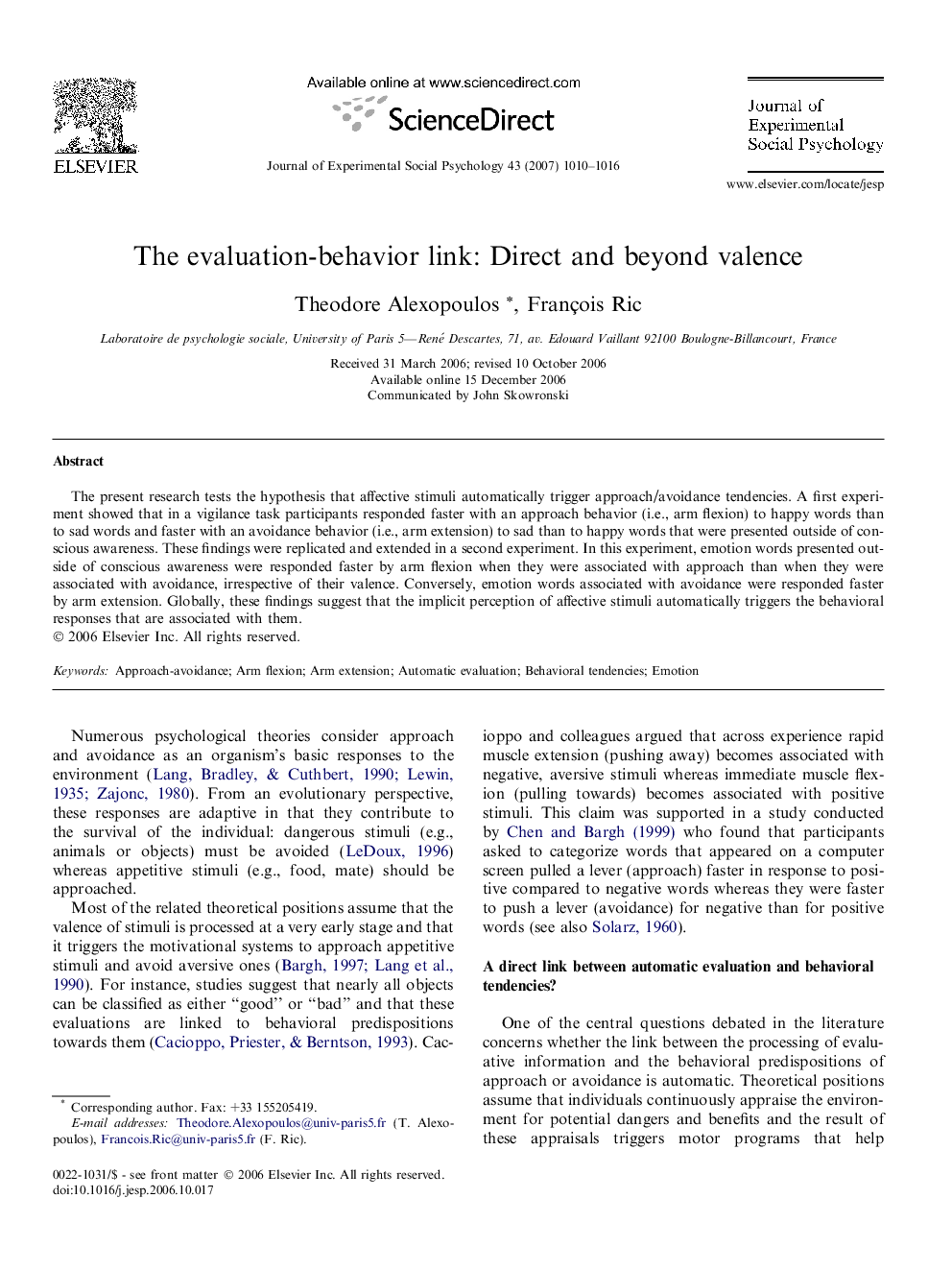| Article ID | Journal | Published Year | Pages | File Type |
|---|---|---|---|---|
| 948442 | Journal of Experimental Social Psychology | 2007 | 7 Pages |
The present research tests the hypothesis that affective stimuli automatically trigger approach/avoidance tendencies. A first experiment showed that in a vigilance task participants responded faster with an approach behavior (i.e., arm flexion) to happy words than to sad words and faster with an avoidance behavior (i.e., arm extension) to sad than to happy words that were presented outside of conscious awareness. These findings were replicated and extended in a second experiment. In this experiment, emotion words presented outside of conscious awareness were responded faster by arm flexion when they were associated with approach than when they were associated with avoidance, irrespective of their valence. Conversely, emotion words associated with avoidance were responded faster by arm extension. Globally, these findings suggest that the implicit perception of affective stimuli automatically triggers the behavioral responses that are associated with them.
